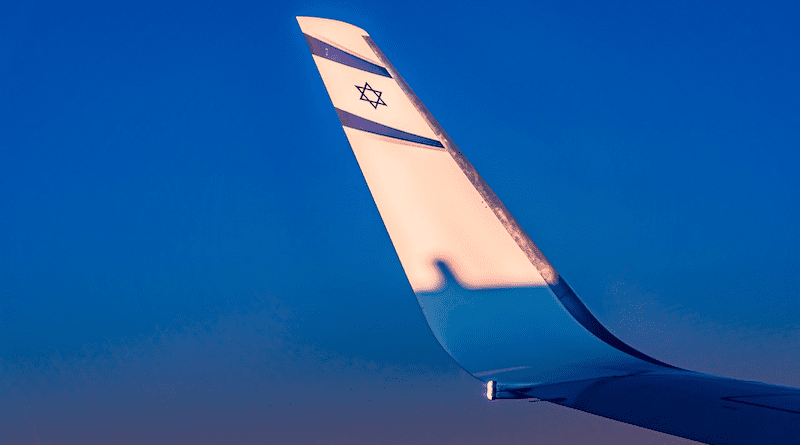High Time For A ‘Hajj Express’ For Israeli Muslims – OpEd
By Arab News
By Mark Dubowitz and Tzvi Kahn*
With the Hajj being only a month away, Saudi Arabia has a chance to take the high road with Israeli Muslims and sidestep the obstacles in their efforts to normalize relations. Riyadh is hereby called upon, for the first time, to allow direct flights for Muslim pilgrims from Israel.
The Hajj, one of the five pillars of Islam, is an annual pilgrimage to Makkah, Islam’s holiest city, that Muslims must conduct at least once in their lifetime if they are physically and financially able. The centerpiece of the trip is the circumambulation of the cube-shaped Kaaba, a black stone structure that, according to the Qur’an, Abraham built as the metaphorical house of God.
More than 2 million Muslims — some 6,000 of whom are Israelis — make the journey each year, though Riyadh significantly restricted such visits during the first three years of the COVID-19 pandemic. The Kingdom now says it has dropped limits on visiting this year.
Yet, until now, pilgrims from Israel, as from the Palestinian territories, have had to travel to Makkah through third countries, incurring surcharges and hassle. With Donald Trump and Joe Biden being the latest US presidents to have flown directly between Israel and Saudi Arabia in recent years, and the Kingdom now routinely allowing Israeli airliners to overfly its territory en route to other destinations, a “Hajj Express” is timely and solutions need to be found for Israeli Muslims to make it easily implementable.
After all, Qatar admitted direct flights from Tel Aviv for World Cup fans. Surely Saudi Arabia can be no less accommodating for the Muslims who make up 18 percent of Israel’s population.
Yair Lapid, who served as Israel’s prime minister from July to December of 2022, is on record as saying he secured an understanding for future direct Hajj flights during his term. When Saudi Arabia opened its airspace for Israeli flights to other countries last summer, Lapid said it was the “first official step in normalization with Saudi Arabia.”
But unlike Lapid, Riyadh has never given an on-the-record confirmation to allow direct flights, which by default raises questions on the hope for normalization. “This issue is under discussion,” said Israeli Foreign Minister Eli Cohen in early May. “I cannot tell you if there is any progress. But with that, I am optimistic that we can advance peace with Saudi Arabia.”
Obstacles remain, however. The Kingdom’s China-brokered renewal of ties with Iran has strained its relations with Israel and may have weakened Riyadh’s appetite for normalization.
The right-wing policies of Israeli Prime Minister Benjamin Netanyahu have also angered the Kingdom. Crown Prince Mohammed bin Salman told the Arab League Summit last week that he remains committed to “establishing an independent state on the 1967 borders with East Jerusalem as its capital.” Such territorial concessions constitute a nonstarter for the Israeli government.
Recent unconfirmed American media reports, and Israeli ones months before them, have suggested that, on top of finding a solution for Palestinians, Saudi Arabia has requested that the Biden administration greenlight the domestic enrichment of uranium on Saudi soil as part of a civilian nuclear program in exchange for normalization with Israel. Washington is loath to take such a step because enriched uranium could also be used for a nuclear weapons program. Riyadh also wants the Biden administration to guarantee the sale of American offensive weapons systems to the Saudis — a demand that faces stiff resistance in Congress.
So, if the Kingdom now withholds consent for direct flights from Israel to Saudi Arabia, it would be a setback for those normalization efforts, not merely a continuation of the status quo. It is hard to see what the Saudis would gain from that.
One way to support the arrangement would be to include Palestinians in the deal.
Israel might also consider earmarking its southern Ramon Airport for the flights. After all, Ramon is significantly closer to the Kingdom than Ben Gurion Airport, making for cheaper routes. Its seclusion from Israeli population centers would also help Israeli efforts to monitor outgoing passengers and incoming flights for security purposes.
A pilot program that ran between August and October proved promising, with dozens of Palestinians from the West Bank traveling back and forth from Ramon to Cyprus and Turkey. This program proceeded over the objections of the Palestinian Authority, which fears being sidelined by such accommodations. Jordan, too, has reason to be concerned about the loss of Palestinian passenger dinars at Amman’s airports.
But Palestinians deserve easier travel. Since Israel is willing to be magnanimous in this regard, Saudi Arabia can certainly follow suit by allowing Ramon to be the springboard for direct Hajj flights for Palestinian and Israeli Muslims alike. And that would be a net positive for efforts to normalize ties between Tel Aviv and Riyadh. Which airline gets to fly the route, how frequent flights would be and what happens for Muslims who wish to perform Umrah — outside of Hajj season — are also questions worth looking into.
• Mark Dubowitz is the chief executive of the Foundation for Defense of Democracies.
• Tzvi Kahn is a research fellow and senior editor at the Foundation for Defense of Democracies.

